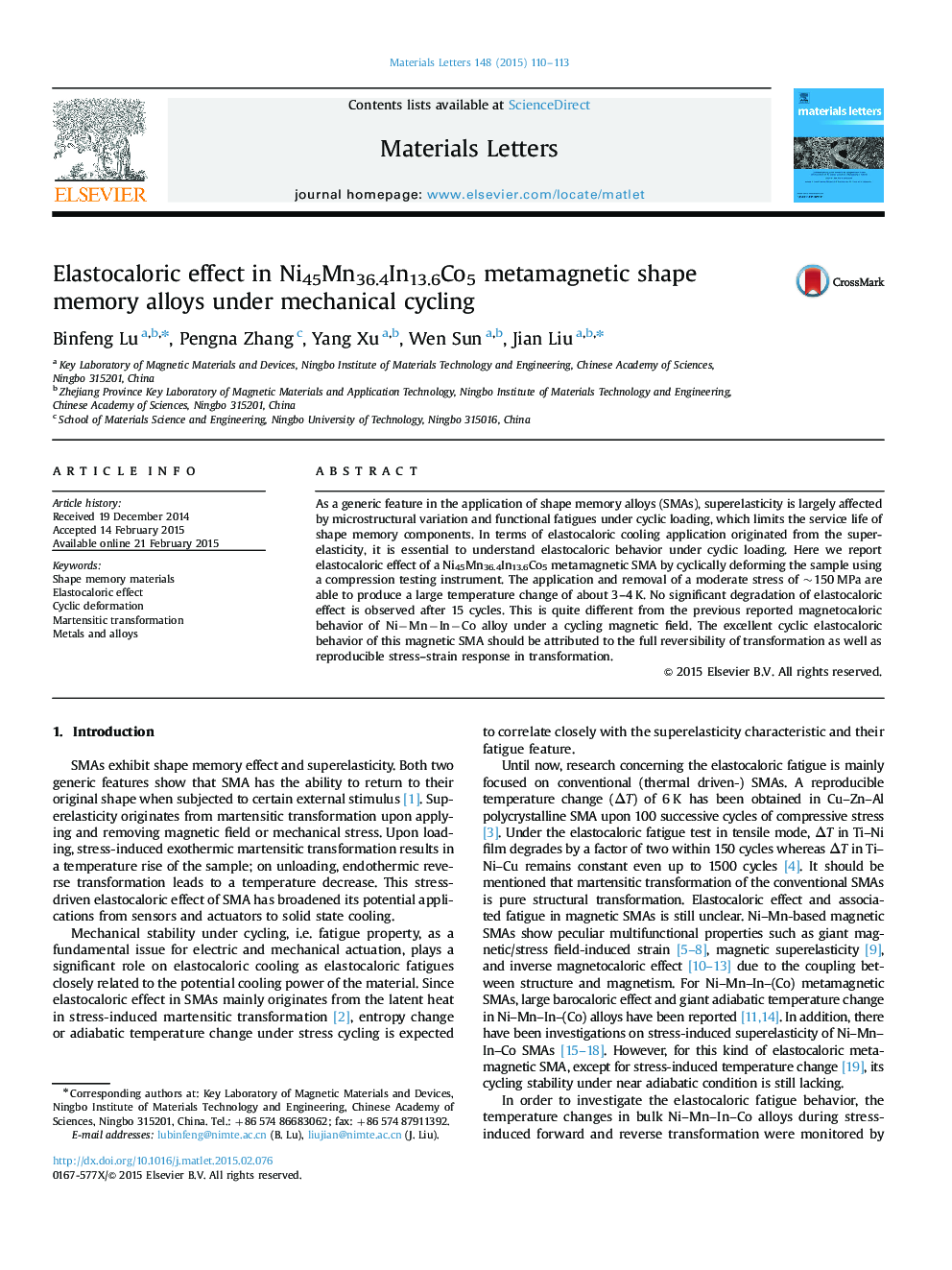| Article ID | Journal | Published Year | Pages | File Type |
|---|---|---|---|---|
| 1642926 | Materials Letters | 2015 | 4 Pages |
•A large transformation strain was obtained in polycrystalline Ni–Mn–In–Co alloy.•Large and reproducible elastocaloric temperature changes at a moderate stress.•Excellent cyclic elastocaloric behavior is ascribed to reproducible transformation.
As a generic feature in the application of shape memory alloys (SMAs), superelasticity is largely affected by microstructural variation and functional fatigues under cyclic loading, which limits the service life of shape memory components. In terms of elastocaloric cooling application originated from the superelasticity, it is essential to understand elastocaloric behavior under cyclic loading. Here we report elastocaloric effect of a Ni45Mn36.4In13.6Co5 metamagnetic SMA by cyclically deforming the sample using a compression testing instrument. The application and removal of a moderate stress of ~150 MPa are able to produce a large temperature change of about 3–4 K. No significant degradation of elastocaloric effect is observed after 15 cycles. This is quite different from the previous reported magnetocaloric behavior of Ni−Mn−In−Co alloy under a cycling magnetic field. The excellent cyclic elastocaloric behavior of this magnetic SMA should be attributed to the full reversibility of transformation as well as reproducible stress–strain response in transformation.
